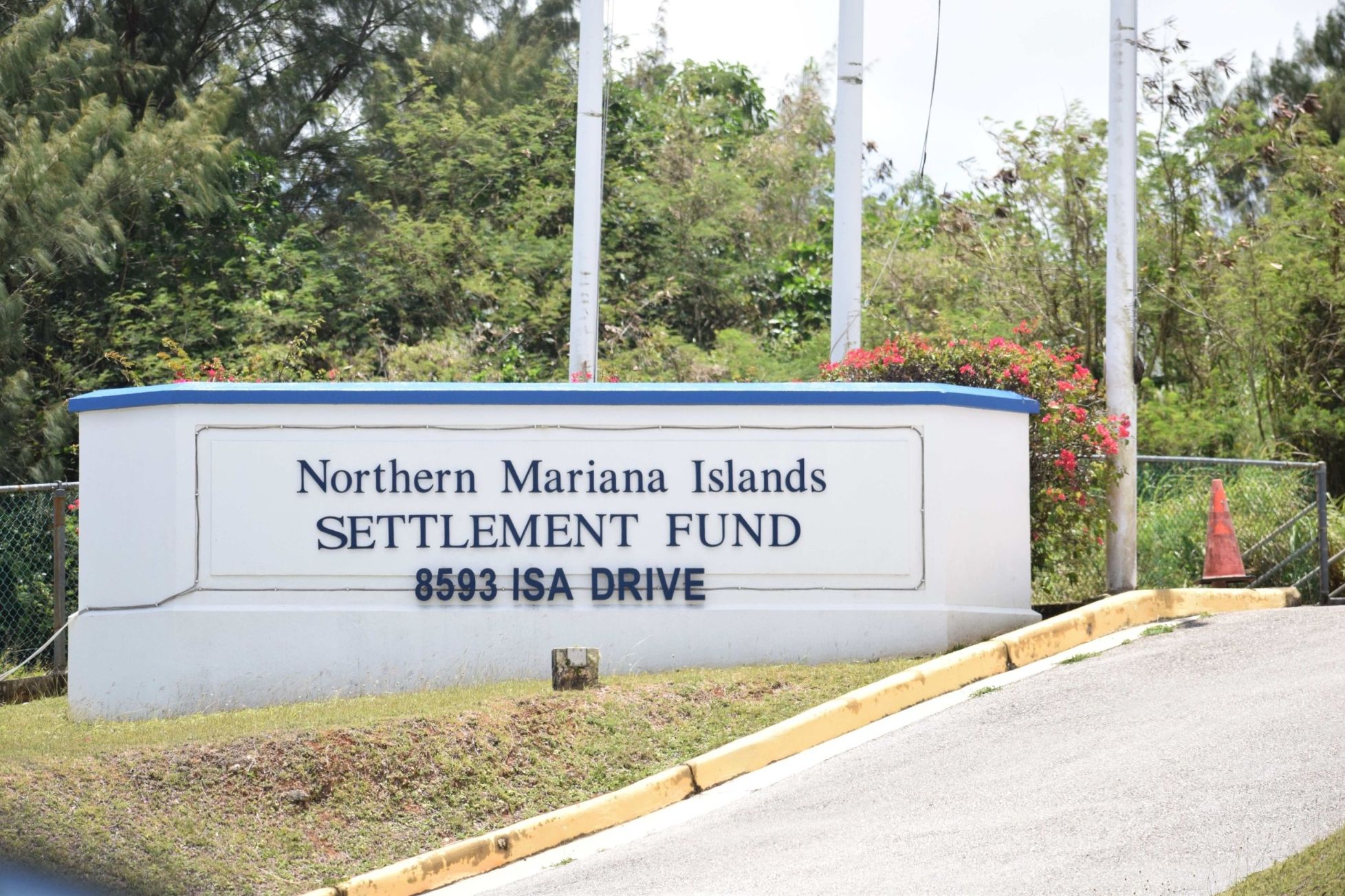THE Governor’s Council of Economic Advisers, or GCEA, last week provided a 2020 Year-End Report to the Senate, providing recommendations to aid in the development and recovery of the local economy.

In the report, the council recommended to foster public private partnerships in the development and maintenance of CNMI parks and tourist sites, as well as to re-establish the American Memorial Park Development Advisory Committee to work with the U.S. National Park Service.
It also recommended a pathway toward establishing universal garbage collection, a tourism resumption blueprint, and the separation of the Commonwealth Development Authority and the Northern Marianas Housing Corporation.
Additionally, it recommended revisiting and implementing the 2015 Integrated Resource Plan, the creation of the Commonwealth Economic Development Authority, and amendments to the CDA qualifying certificate program.
Moreover, a Marpi Visitors Center, instituting a branding requirement on all future public land leases for hotel establishments, allowance of developers infrastructure tax credits for culturally appropriate designs, and increasing enforcement authority for tour guide certification were also recommended by the GCEA.
“Over the course of the Council’s efforts in its first year of existence in the CNMI, much has been accomplished and never has the challenge of fostering a creative, viable, and resilient economy in the Commonwealth been more apparent,” wrote the Council in its report to the Senate body.
The Council said that it saw its role within the last year as one of cultivating partnerships with the private sector and civic organizations across the Commonwealth to address the complex issues facing the community.
These partnerships, they said, provided for a wide array of ideas to support the CNMI government across a spectrum of issues, ideas that translated into recommendations, in line with the Council’s mandate.
The public private partnerships develop community ownership over the parks, public facilities, and tourist sites, decentralizing efforts toward destination enhancement and public enjoyment of local sites and attractions.
Re-establishing the American Memorial Park Development Advisory Committee to work with U.S. National Park Service would establish stronger ties between the local government and the sites and facilities in the AMP area through providing local input into park development, use, and upkeep.
Recognizing the long-term issue of litter and improper trash disposal, the Council recommended utilizing a universal garbage collection system resembling that of other jurisdictions, such as American Samoa.
The system would support residential access to garbage collection services, increase the scale of commercial garbage collection services, and simplify the costs associated with solid waste collection and management for residences and government services.
On another note, the Council also recommended the Tourism Resumption Blueprint which was based on discussions with the CNMI Covid-19 Task Force and the Commonwealth Healthcare Corporation.
The blueprint is currently being used by the Marianas Visitors Authority in its ongoing efforts to support partial resumption of tourism this year, addressing how to resume tourism, build domestic and international trust in the safety of CNMI as a tourism destination, and the efforts necessary to rebuild the economy and support jobs when the Covid-19 threat has subsided.
It provides a roadmap towards utilizing the existing risk mitigation framework, and slowly and cautiously resuming tourism arrivals in a way that is safe for CNMI residents and visitors.
The Council also recommended that the governor use his executive authority to restructure the governance of CDA andNMHC, so as to support each agency with greater attention by establishing two separate boards of directors.
Both agencies are necessary for rebuilding the local economy and redeveloping the Commonwealth from disaster.
Revisiting and implementing the 2015 Integrated Resource Plan was also recommended by the Council, in an effort to restructure the processes by which the Commonwealth Utilities Corp. provides energy needed for the economy, as well as to acquire new energy resources for the CNMI.
“Over the course of the CNMI’s development as a modern economy, power generation has been consistently considered both a prerequisite of private sector development and a perpetual hurdle toward accomplishing greater levels of economic growth,” said the Council.
Moreover, the Council recommended creating the CEDA to advance the ability of the Commonwealth to drive economic growth toward a direction that will enhance quality of life for its residents.
“The economic development of the Commonwealth can be best served by a targeted approach by the CDA aimed at the needs of the economy and providing CDA with the mandate and resources to support this effort,” the Council said.
Furthermore, the Council recommended substantial updates to the CDA qualifying certificate program to keep the CNMI competitive among locations across the globe.
The program is a key tool used for incentivizing investment in the CNMI.
A pathway towards expanding public private initiatives for the CNMI was also proposed by the Council, citing that “many governments have achieved cost reductions and service improvements through the strategic and transparent privatization of previously government services.”
The Council also recommended instituting a branding requirement on all future public land leases for hotel establishments.
Branded hotel establishments, the Council noted, have tremendous economic potential for a tourism destination.
“Brands not only bring with them substantial global marketing resources, but also world-class standards on maintenance, upkeep, and aesthetic design,” said the Council.
Requiring hotel developers who wish to use the CNMI’s limited availability of public lands to support their proposals with a brand, the Council said, is wise and has the potential to dramatically increase the overall marketability of the CNMI around the world.
The Council also recommended allowing developers infrastructure tax credits for culturally appropriate designs, a cost incentive that would support the policy of cultural awareness on all new developments.
Deeming this as an effective method to increase the cultural visibility of the islands within the built landscape of businesses and facilities, the Council said that this incentive would showcase the rich CNMI cultural history that “deserves to be showcased to domestic and international markets.”
Lastly, the Council recommended increasing enforcement authority for tour guide certification so that CNMI tour guides are presenting the islands appropriately and managing their tours safely, in line with CNMI laws and interests.
The Council recommends instituting strict penalties on tour operators who operate in contravention of the law.
Chaired by Jerry Tan, the GCEA members are Michael Sablan, Alex Sablan, Matthew Deleon Guerrero, former Sen. Frank Borja, Rep. Joseph Leepan Guerrero, Joseph Guerrero, Warren Villagomez, Gary Sword, Roman “Bo” Palacios, Alex Youn, Masato Tezuka, Aubry Hocog, Marcie Tomokane, and Don Power.
The Council is broken down into three committees focusing on domestic policy, tourism infrastructure, and fiscal and economic diversification.
Meetings occur at least once every month to discuss and address challenges to the local economy, including impacts to personal consumption, the need for diversification of the government’s fiscal resources, access to skilled labor, mobilizing disaster assistance, and housing support.
Next steps for the CNMI economy include streamlining government permitting; tourism site rehabilitation; reengaging the Japan market; quality, safe, and healthy road infrastructure; recognizing the healthcare as an economic resource; expanding air service throughout the CNMI; creating the means to lead economic growth and diversification; addressing systemic obstacles toward accessing labor; and crafting policy that supports community growth and enhances quality of life.
“Despite the challenges the CNMI has faced in 2020 and the challenges that await the community in the months ahead, there is much to be thankful for. Due to the effort and diligence of the Torres administration, the CNMI community remains one of the safest communities from a disease that has caused great turmoil and heartache across the world,” said the Council.
It added, “Lives have been saved through the proactive support of the government when it was needed most. These lives will comprise the future successes of our economy and the strength of the community who have come together through this crisis will see our islands to a better future in the years to come.”











